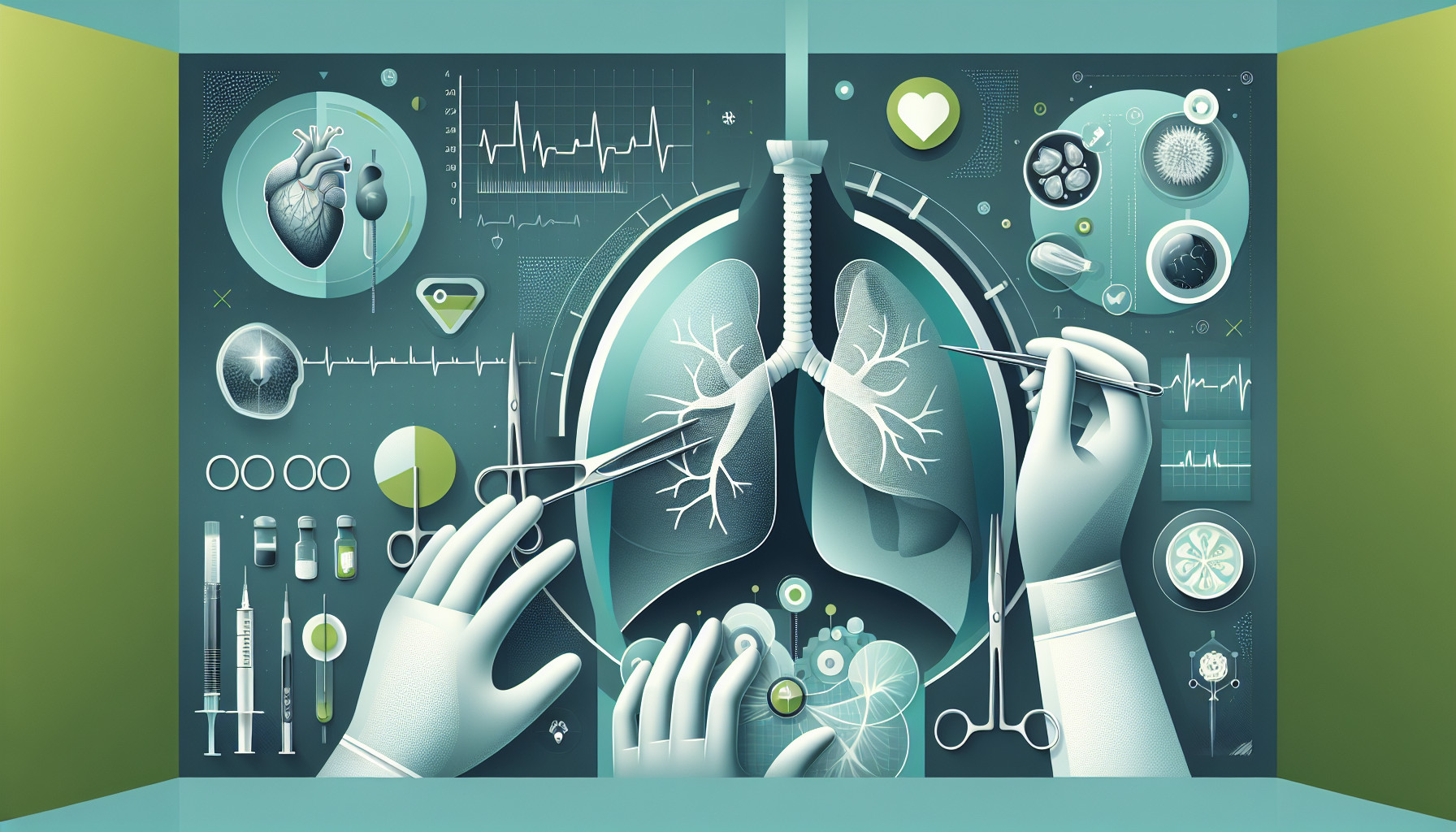Our Summary
This research paper discusses lung transplantation, a procedure often used as a last resort for patients with severe, irreversible lung disease. While this operation can be very effective, it is also complex and carries risks for complications. These complications can result from a variety of factors, such as the health condition of both the recipient and the donor, technical problems during surgery, issues that arise shortly after the operation, and the body’s immune response to the new organ. The paper provides an overview of some of the main complications that can occur after a lung transplant. The authors give their expert advice on how to prevent these issues, as well as how to identify and treat them quickly if they do occur.
FAQs
- What are some potential complications of lung transplantation?
- How can practitioners avoid complications related to lung transplantation?
- What is the role of recipient and donor factors in potential lung transplantation complications?
Doctor’s Tip
One important tip that a doctor might tell a patient about lung transplant is to follow the post-operative care plan diligently. This may include taking prescribed medications, attending follow-up appointments, participating in pulmonary rehabilitation programs, and making healthy lifestyle choices such as quitting smoking and exercising regularly. Following the post-operative care plan can help optimize the success of the lung transplant and reduce the risk of complications.
Suitable For
Patients who are typically recommended for lung transplant are those with irreversible lung disease that is severely affecting their quality of life and prognosis. This includes patients with conditions such as cystic fibrosis, chronic obstructive pulmonary disease (COPD), pulmonary fibrosis, pulmonary hypertension, and bronchiectasis. These patients typically have severe symptoms that are not adequately managed with medical therapy and have a limited life expectancy without a transplant. Additionally, patients must meet certain criteria for lung transplant, such as being in good overall health aside from their lung disease, having a strong support system, and being willing to adhere to a rigorous post-transplant medication regimen.
Timeline
Before lung transplant:
- Patient undergoes extensive evaluation to determine if they are a suitable candidate for lung transplantation
- Patient is placed on a waiting list for a suitable donor organ
- Patient may experience worsening symptoms of their lung disease, such as shortness of breath, fatigue, and coughing
- Patient may undergo pre-transplant treatments to stabilize their condition, such as oxygen therapy or pulmonary rehabilitation
After lung transplant:
- Patient undergoes the lung transplant surgery, which typically takes several hours
- Patient is closely monitored in the intensive care unit immediately following surgery
- Patient may experience complications such as primary graft dysfunction, infection, rejection, or organ failure
- Patient undergoes a period of recovery in the hospital, which can last several weeks to months
- Patient requires ongoing follow-up care, including regular monitoring of lung function, medication management, and rehabilitation to regain strength and function
- Patient may experience improvements in their symptoms and quality of life, but also may face challenges such as medication side effects, rejection episodes, and the need for additional treatments or interventions.
What to Ask Your Doctor
- What is the success rate of lung transplants at this hospital?
- What are the potential risks and complications associated with a lung transplant?
- How long is the recovery process after a lung transplant?
- What medications will I need to take after the transplant and what are the potential side effects?
- How often will I need to come in for follow-up appointments after the transplant?
- Are there any lifestyle changes I will need to make after the transplant?
- How long can I expect the transplanted lung to last?
- What are the signs of rejection and how can it be prevented or treated?
- Are there any restrictions on activities or travel after a lung transplant?
- What support services are available for lung transplant recipients at this hospital?
Reference
Authors: Loor G, Mattar A, Schaheen L, Bremner RM. Journal: Thorac Surg Clin. 2022 May;32(2):197-209. doi: 10.1016/j.thorsurg.2022.01.003. PMID: 35512938
